Israel announces ceasefire deal with Hezbollah in Lebanon, US warns terror group ‘will not be allowed’ to rebuild
Israel’s massive new ceasefire deal has come with some words of ominous warning from American President Joe Biden.
World
Don't miss out on the headlines from World. Followed categories will be added to My News.
The Israeli government’s security cabinet has voted in favour of a ceasefire deal which will halt the war with Hezbollah in Lebanon.
The cabinet voted for the deal by a margin of 10-1. The only dissenting voice was National Security Minister Itamar Ben-Gvir.
Prime Minister Benjamin Netanyahu addressed his nation on Tuesday evening, local time, to publicly confirm that the deal would be implemented, though he also warned that Israel would react “very forcefully” if Hezbollah were to breach its conditions.
Mr Netanyahu said the ceasefire would enable Israel to “refresh”, “rearm” and refocus on the threat posed by Iran, which supports and finances Hezbollah.
It will also, he hopes, leave Hezbollah’s ally in Gaza, Hamas, more isolated.
“Hamas was counting on Hezbollah fighting together, and once Hezbollah is eliminated, Hamas is left alone,” said the Prime Minister.
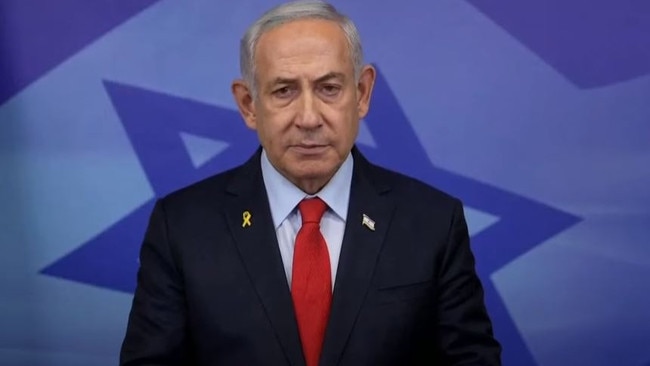
The length of the United States-brokered ceasefire “depends on what happens in Lebanon”, Mr Netanyahu said, again stressing that a breach of its terms by Hezbollah would immediately lead to a resumption in hostilities.
“If Hezbollah tries to attack us, if it arms itself and rebuilds infrastructure near the border, we will attack. If they launch missiles, if they dig big tunnels, we will attack,” he warned.
“With the United States’ full understanding, we maintain full freedom of military action.”
As things stand, Mr Netanyahu argued, Hezbollah is “not the same Hezbollah anymore” and its strength has been sent “decades back”. He highlighted his country’s successful assassination of the terror group’s leader, Hassan Nasrallah, whom he described as “the head of the snake”.
According to Lebanese health officials, about 3800 people have been killed in Israel’s strikes on the country, with another 15,900 injured. The full-scale strikes began after a year of Israel trading sporadic fire with Hezbollah over the border.
Hezbollah’s attacks, meanwhile, have killed 82 Israeli soldiers and 47 civilians.
Ceasefire intended to be ‘permanent’
Speaking in Washington D.C., US President Joe Biden hailed his country’s diplomatic efforts, along with those of France and other allies, to get the ceasefire deal across the line.
“Let’s be clear: Israel did not launch this war. The Lebanese people did not seek this war either, nor did the United States,” Mr Biden said.
“Since the war with Hezbollah began, almost 70,000 Israelis have been forced to live as refugees in their own country.
“Over 300,000 Lebanese people have also been forced to live as refugees in their own county, in a war imposed on them by Hezbollah.
“All told, this has been the deadliest conflict between Israel and Hezbollah in decades.”
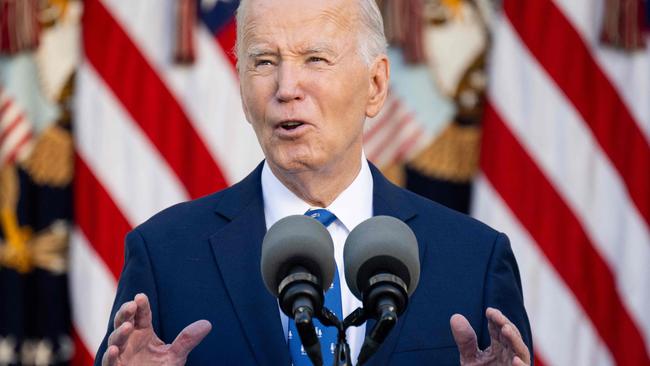
Mr Biden stressed that “lasting security” for the people of both Israel and Lebanon could not be achieved “only on the battlefield”, which is why he pushed hard in recent months “to bring the conflict to a close”.
“Under the deal reached today, effective at 4am tomorrow local time, the fighting will end. Will end. This is designed to be a permanent cessation of hostilities,” he said.
“What is left of Hezbollah and other terrorist organisations will not - I stress, will not - be allowed to threaten the security of Israel again.
“Hezbollah’s terrorist infrastructure in southern Lebanon will not be allowed to be rebuilt. And over the next 60 days, Israel will gradually withdraw its remaining forces. Civilians on both sides will soon be able to safely return to their communities.
“We are determined this conflict will not be just another cycle of violence.
“Let me be clear: if Hezbollah or anyone else breaks the deal, and poses a direct threat to Israel, then Israel retains the right to self-defence, consistent with international law.
“At the same time, this deal supports Lebanon’s sovereignty. So it heralds a new start for Lebanon, a country with a rich history and culture.
“This deal could put Lebanon on a path to a future that’s worthy of a significant past.”
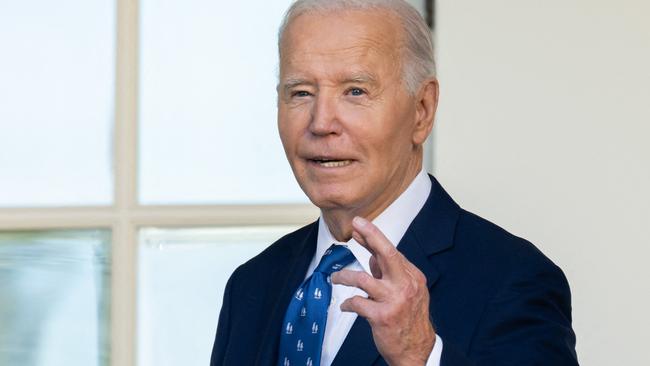
Mr Biden also brought up the continuing conflict in Gaza, saying of the strip’s residents that “they too deserve an end to the fighting”.
“The people of Gaza have been through hell. Their world’s absolutely shattered. Far too many civilians in Gaza have suffered far too much,” he said.
The President accused Hamas of “refusing”, for months, to negotiate a ceasefire in good faith.
“So now Hamas has a choice to make,” said Mr Biden.
“Their only way out is to release the hostages, including American citizens. In the process, bring an end to the fighting, which would make possible a surge of humanitarian relief.”
How the ceasefire came about
The US had been pushing hard for the Netanyahu government to end its attacks on Lebanon, despite their success in killing much of Hezbollah’s leadership.
Before Mr Netanyahu’s speech overnight, US Secretary of State Antony Blinken said that efforts to secure a ceasefire in Lebanon were “in the final stages”, and that a deal could help end the Gaza conflict.
“We’re not there yet, but I believe we are in the final stages,” Mr Blinken told reporters after a meeting near Rome with his G7 counterparts. He argued that, “by de-escalating tensions in the region” progress could be made in Gaza.
“Hamas will know that it can’t count on other fronts opening up in the war. So we’re tracking this very closely, and I hope and believe that we can get this over the finish line,” he said.
Mr Blinken said that after months of “intensive diplomatic effort” with partners including France, working with Lebanon and Israel, he hoped to reach a conclusion “very soon”.
“It will make a big difference in saving lives and livelihoods in Lebanon and in Israel. It will make a big difference in creating the conditions that will allow people to return to their home safely in northern Israel and in southern Lebanon,” he said.
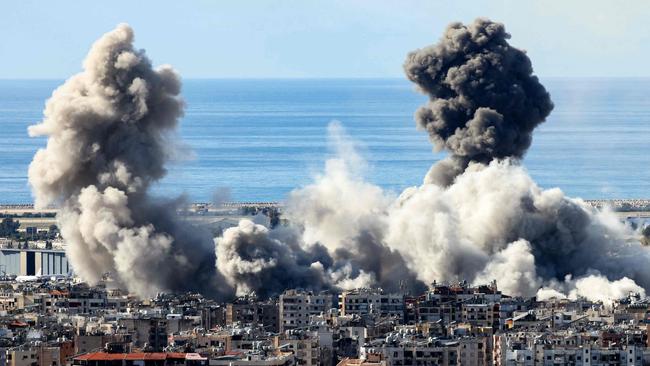
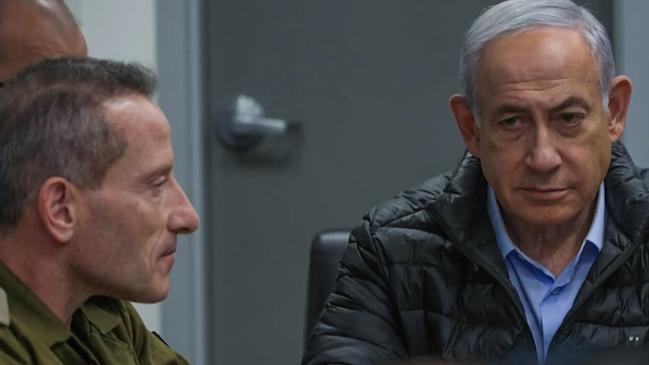
The Israeli security cabinet’s decision will not be universally supported. Mr Ben-Gvir has already come out against it publicly, describing it as a “historic mistake”.
“This is not a ceasefire. It’s a return to the concept of silence for silence, and we have already seen where this leads,” Mr Ben-Gvir wrote in a statement posted on social media.
Speaking before Mr Netanyahu’s announcement, Israeli Finance Minister Bezalel Smotrich pre-emptively eviscerated the idea of a ceasefire.
“If there is an agreement, it is not worth the paper it is written on,” Mr Smotrich said.
“We have destroyed them, and we will continue to destroy them. We will not allow them to rebuild. Anyone who raises his head will be bombed. This is the test.
“I believe that the Israeli public, the army, and the leadership are more aware now. After October 7, we are in a new state of awareness, and this is our decision. Anyone who moves against us will die. This is simple.”
Across the border, Lebanese Prime Minister Najib Mikati has demanded “swift” action from the international community to implement the ceasefire “immediately”.
“The Israeli enemy has no regard for any law or consideration,” he said.
“The international community is called upon to act swiftly to stop this aggression and implement an immediate ceasefire.”
- with AFP
Originally published as Israel announces ceasefire deal with Hezbollah in Lebanon, US warns terror group ‘will not be allowed’ to rebuild


